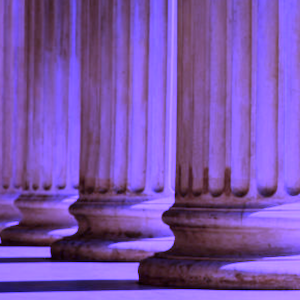
On Tuesday, Sept. 22, 2020, President Donald Trump signed Executive Order (EO) 13950 on race and sex stereotyping. The executive order bars executive departments and agencies, uniformed services, federal contractors, and federal grant recipients from participating in training that “promotes race or sex stereotyping or scapegoating” and states that grant recipients also must adhere to similar standards. The order is effective immediately, but its specific requirements for federal contractors apply only to those with federal contracts entered after Nov. 21, 2020.
What Board Members Need to Know
The Department of Labor (DOL) has released a frequently asked questions document to clarify the order’s impact on DOL contracts and grants, and has established a hotline “for reporting race and sex stereotyping and scapegoating.” As of Oct. 19, 2020, the Department of Education (ED) has not issued guidance, and it is unclear how ED will apply the order to institutions of higher education. Given the uncertainty and the limited guidance from DOL, some institutions have paused training programs.
AGB will continue to keep members updated as relevant agencies offer more information and take additional action to implement the order.
Questions for Boards
- Does (or should) your board have a justice, diversity, equity, and inclusion (JDE&I) policy that manifests across campus, departments, the foundation, and/or the system?
- How does your institution conduct diversity and inclusion training for board members, students, faculty, and staff?
- How does your board receive information about diversity, equity, and inclusion efforts?
- In what ways has your institution benefited from an open dialogue about diversity, equity, and inclusion?
- As this EO is still being implemented, how does your board stay up to date with new and evolving federal regulations?
- Moving forward, is there agreement and alignment about the institution’s strategy as it relates to diversity, equity, and inclusion?
Why This Issue Is Important
Many institutions, foundations, and other higher education entities have sought to increase diversity, equity, and inclusion to create a sense of belonging across campus and to enrich their missions. These trainings are helpful in understanding individuals and to better work together to create a positive environment for every student, faculty, and staff member. The executive order, and the way ED may choose to implement it, could have a significant impact on increasing diversity and awareness. It will also make institutions cautious about how they move forward on diversity and awareness efforts for fear of jeopardizing the receipt of federal funds. AGB and more than 50 other higher education associations signed onto a letter to President Trump opposing the EO, stating that it will require “an unprecedented expansive review of internal training materials at both public and private entities” and also “exercises executive power to limit speech on campus…”
Perhaps more important, increased education on these issues is helpful in fighting systemic racism, promoting a sense of belonging, and generally enhancing the quality of life for employees, students, and others. The executive order and the way ED may choose to implement it could have a significant impact on higher education’s efforts to be a force for good in society. Because of the ambiguity in what may violate the executive order, institutions could curtail training on diversity, equity, and inclusion due to fear of overzealous activity on behalf of regulators. Institutions will be cautious about how they move forward on diversity and awareness efforts because the consequences of noncompliance (namely, loss of federal funding) are so high.
Additional Resources
- Community Letter to President Trump Regarding Executive Order 13950 (October 8, 2020)
- “Diversity Work, Interrupted” (October 7, 2020) – Inside Higher Ed
- “Trump Attack on Diversity Training Has Quick and Chilling Effect” (October 13, 2020) – The New York Times
- “University of Iowa pauses diversity training after Trump executive order” (October 5, 2020) – The Gazette
- Statement from AGB Regarding the AGB Justice, Diversity, Equity, and Inclusion Initiative (September 28)
- Diversity, Equity, and Inclusion in the AGB Knowledge Center

